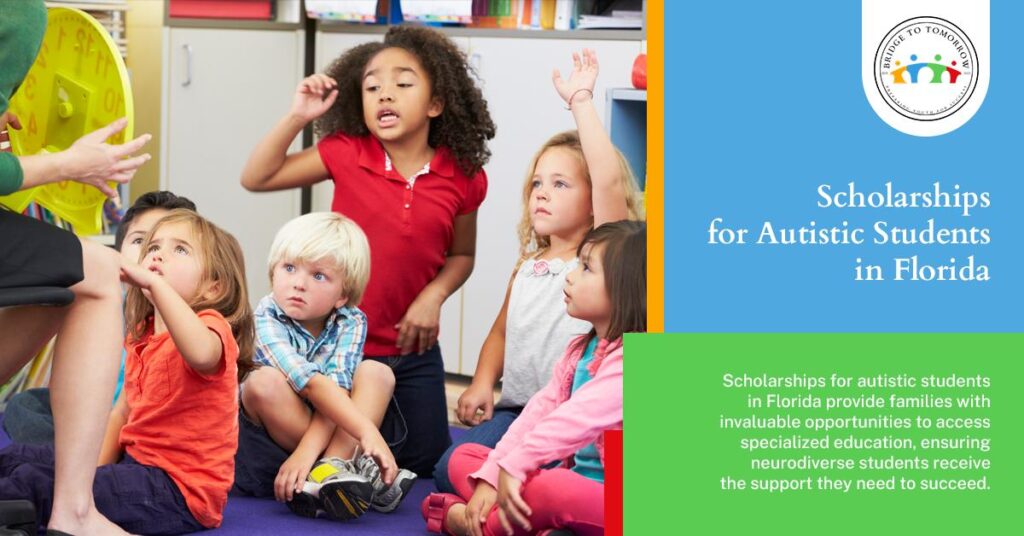
A Guiding Hand: My Personal Journey to Finding Scholarships for Autistic Students
The dream of higher education always shimmered brightly for me, a beacon on the horizon. Yet, as someone navigating the world with autism, that path often felt less like a smooth road and more like a winding trail through dense woods. There were the usual anxieties about academics, fitting in, and leaving the comfort of home, but layered on top of those were the unique challenges that come with being on the spectrum. Sensory sensitivities, social nuances that felt like deciphering an alien language, and the sheer mental effort of masking to appear "typical" – all of it weighed heavily on my mind. And then, there was the looming shadow of tuition fees. How was I, or my family, going to manage the financial burden, especially when the thought of juggling studies with a demanding part-time job felt like an insurmountable task?
I remember sitting at my desk, a pile of college brochures fanned out before me, each one whispering promises of a brighter future, yet each also carrying a hefty price tag. My parents, bless their hearts, were always supportive, but I could see the worry lines etching deeper around their eyes. "We’ll find a way," my mom would say, but her voice held a tremor I understood all too well. It was in those moments of quiet despair that I first stumbled upon the idea of scholarships – not just any scholarships, but ones specifically designed for autistic students. It felt like finding a hidden spring in a desert, a lifeline I hadn’t even known to look for.
The journey began with a single, tentative search query typed into an old laptop: "scholarships for autistic students." What followed was an eye-opening revelation. It wasn’t just a handful of obscure grants; there was a whole world of support out there, created by organizations, individuals, and institutions who understood the unique strengths and needs of neurodivergent learners. This discovery didn’t just offer financial hope; it offered validation. It told me, in no uncertain terms, that I wasn’t alone, and that my pursuit of knowledge was valued.
Why do these scholarships matter so much? Well, beyond the obvious financial relief, they speak to a deeper truth. For many autistic students, the transition to college can be incredibly challenging. The structured environment of high school often provides a predictable routine, clear expectations, and familiar faces. College, with its vast campuses, fluctuating schedules, diverse social scene, and less direct oversight, can feel overwhelming. The energy spent on simply navigating the environment, understanding unwritten social rules, or managing sensory input can detract from academic focus. Some autistic students might require specific accommodations, like single rooms for quiet, extended time on tests, or access to disability support services, all of which might indirectly add to the overall cost of education or the perceived barrier to entry. Scholarships tailored for autistic individuals often recognize these nuanced needs, providing not just money, but sometimes also a network of support, mentorship, or a community of peers who understand. This understanding fosters an environment where autistic students can not only survive but truly thrive.
My own quest started small, with local leads. My high school guidance counselor, a kind woman named Mrs. Henderson who always had a listening ear, was my first stop. She didn’t have a specific list for autistic students, but she pointed me towards general scholarships for students with disabilities and encouraged me to mention my autism in my personal essays, focusing on how my unique perspective enriched my learning. This was a crucial piece of advice: don’t hide your autism; frame it as a part of your identity that brings a different, valuable lens to the world.
Next, I delved into the digital realm. I spent countless hours on scholarship search engines, filtering by disability, specific diagnoses, and academic interests. I also looked at websites of major autism advocacy organizations. These organizations, I quickly learned, often have their own scholarship programs or maintain comprehensive lists of external opportunities. Foundations dedicated to neurodiversity, local community groups, and even some corporations with diversity and inclusion initiatives were all potential avenues. It felt like piecing together a vast, intricate puzzle, each website a new piece.
One of the most intimidating parts of the application process was the personal essay. How do you condense your entire journey, your struggles, your triumphs, and your aspirations into a few hundred words? And how do you talk about autism without it sounding like a plea for pity or an excuse? Mrs. Henderson’s advice echoed in my mind: focus on strengths. I decided to tell my story not as a list of deficits, but as an explanation of my unique way of seeing the world. I wrote about my intense focus on subjects I loved, my meticulous attention to detail, and my ability to approach problems from unconventional angles – traits that, while sometimes linked to challenges, were ultimately powerful assets. I described how my sensory sensitivities made certain environments difficult, but how they also heightened my appreciation for quiet spaces, for the intricate patterns in nature, or the precise rhythm of music. I wrote about the support systems that had helped me, and how my journey with autism had fostered incredible resilience and empathy. It wasn’t easy; I rewrote that essay countless times, each revision peeling back another layer until I felt it truly captured my authentic voice.
Letters of recommendation were another key element. I chose teachers who knew me well, not just academically, but personally. My English teacher, Mr. Davies, always appreciated my unique interpretations of literature, and my science teacher, Ms. Chen, saw my methodical approach to experiments as a strength. I provided them with a brief summary of my journey and the specific scholarships I was applying for, reminding them of instances where my autism had manifested in positive ways – perhaps a deep dive into a research project, or an unusual but effective problem-solving strategy. Their words, I hoped, would paint a picture of a dedicated, thoughtful student.
As I sifted through the myriad opportunities, I began to categorize them mentally. There were the autism-specific scholarships, which were often the most welcoming and understanding. These came from organizations like the Organization for Autism Research (OAR), Autism Speaks (though I learned to research organizations carefully to ensure their mission aligned with my values), and smaller local foundations. These often looked for students who demonstrated academic promise, a commitment to self-advocacy, and a clear vision for their future.
Then there were the general disability scholarships. These were broader, open to students with various disabilities, and required me to clearly articulate how my autism impacted my educational journey and how I planned to succeed. While not exclusively for autistic students, they still provided valuable avenues for funding.
I also discovered merit-based scholarships and need-based scholarships. Merit-based ones often looked at GPA, test scores, and extracurricular activities, expecting a strong academic record. Need-based ones, on the other hand, focused on financial circumstances, often requiring detailed financial statements from my family. Many scholarships, I found, were a blend of both, seeking students who were both academically capable and in need of financial assistance.
Don’t forget the local scholarships! These were often overlooked but incredibly valuable. My town had a women’s club, a Rotary chapter, and a few small community foundations that offered scholarships to local students. The competition for these was often less fierce than for national scholarships, and the personal connection could sometimes make a difference. I even found one from a local business that was specifically looking for students interested in a particular vocational field, which sparked my interest in exploring different career paths.
Beyond the money, some of these scholarships offered something even more precious: a sense of community. I remember applying for one that, besides financial aid, also offered a mentorship program. The idea of connecting with someone who had walked a similar path, who understood the unique challenges and triumphs of being an autistic student in higher education, was incredibly appealing. Even if I didn’t get that particular scholarship, the thought alone made me feel less isolated. It was a reminder that support extended beyond just financial figures.
The application process was not without its moments of frustration. There were countless forms to fill out, deadlines to juggle, and the inevitable rejections that stung. Each "no" felt like a personal blow, a judgment on my worth or my potential. But with each rejection, I learned to re-evaluate, to refine my essays, to seek out new opportunities. Persistence became my mantra. My mom would remind me, "Every ‘no’ brings you closer to a ‘yes’." And she was right.
One evening, after months of diligent searching and applying, an email landed in my inbox. The subject line was simple: "Scholarship Award Notification." My heart pounded as I clicked it open, my hands trembling. It was from a national foundation dedicated to supporting neurodivergent students in STEM fields, a field I was passionate about. I had poured my heart into that application, detailing my fascination with coding and how my logical, pattern-seeking mind found solace and excitement in the world of computer science. Reading the words, "We are delighted to inform you that you have been selected…" brought tears to my eyes. It wasn’t the full cost of tuition, but it was a substantial amount, enough to significantly lighten the load and make my dream feel tangible. It was a validation of my efforts, my unique perspective, and my potential.
My journey taught me invaluable lessons that I want to share with anyone else embarking on this path:
- Start Early: Scholarship applications take time. Research, essay writing, gathering recommendations – it all adds up. Begin your search a year or even two before you plan to attend college.
- Be Organized: Create a spreadsheet or a folder system to keep track of deadlines, requirements, essays, and contact information for each scholarship. This will save you immense stress.
- Tailor Your Applications: Avoid sending generic essays. Each scholarship has a specific mission or focus. Read it carefully and adapt your essay to align with what they are looking for. Show them why you are the perfect fit for their scholarship.
- Embrace Your Authentic Self: Don’t shy away from discussing your autism. Frame it as a unique aspect of your identity that brings strengths, resilience, and a valuable perspective. Talk about how you’ve navigated challenges and how those experiences have shaped you.
- Proofread Mercilessly: A sloppy application can undermine even the most compelling story. Get multiple people to read your essays and forms for grammar, spelling, and clarity.
- Don’t Be Afraid to Ask for Help: Reach out to guidance counselors, teachers, disability support offices, and even family members for assistance with essays, recommendations, or navigating the financial aid process.
- Persistence is Key: You will likely face rejections. Don’t let them deter you. Learn from each one, refine your approach, and keep applying. There are many scholarships out there, and one of them has your name on it.
- Look Beyond Financial Aid: Some scholarships offer mentorship, networking opportunities, or a sense of community. These non-monetary benefits can be just as valuable as the financial award.
The road to higher education for autistic students might have its unique challenges, but it is a road well worth traveling. The world needs diverse voices, diverse thinkers, and diverse problem-solvers. Autistic individuals bring a richness of perspective, an incredible capacity for deep understanding, and often, an unwavering dedication to their passions. Scholarships for autistic students are more than just financial aid; they are an investment in these unique strengths, a testament to the belief that neurodiversity enriches our campuses and our society.
My own experience taught me that with a bit of courage, a lot of research, and a willingness to tell my story authentically, the seemingly impossible dream of college could become a beautiful reality. If you’re an autistic student dreaming of college, know that you are not alone, your aspirations are valid, and there are countless hands reaching out to help you on your journey. Go find them, tell your story, and let your unique light shine. The world is waiting for you.


